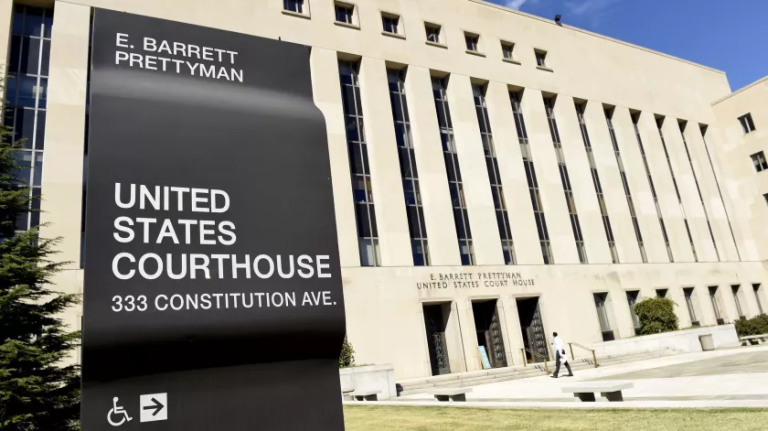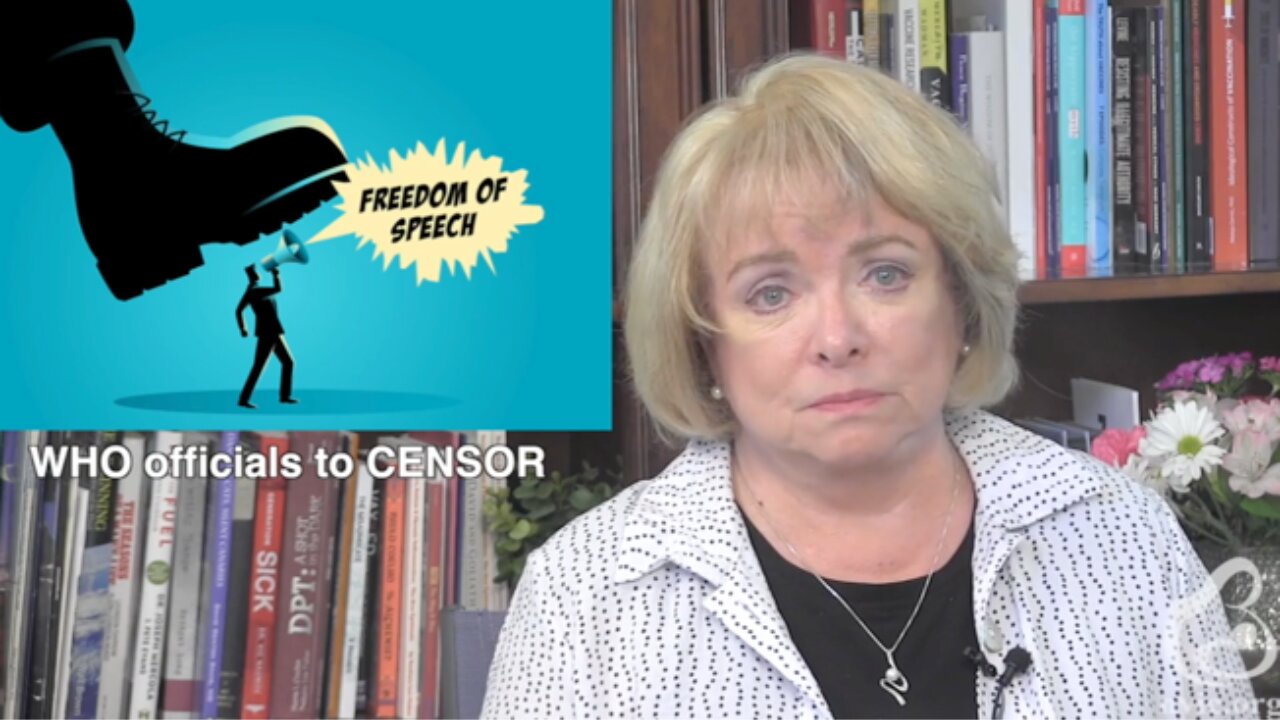On Mar.18, 2022, Judge Trevor N. McFadden of the United States District Court for the District of Columbia granted a preliminary injunction, pending further order from the court, to stop the city’s Minor Consent for Vaccination Act of 2020 (MCA) from being implemented by city officials. At least temporarily, doctors will not be allowed to vaccinate children as young as 11 years old without the knowledge or consent of their parents.1
The MCA and the Minor Consent for Vaccination Act Amendment of 2020 permits children 11 years old to “consent” to receiving a vaccine recommended by the U.S. Centers for Disease Control and Prevention’s (CDC) Advisory Committee on Immunization Practices (ACIP) without the knowledge of their parents when a doctor believes the child is capable of meeting the informed consent standard. Under the DC law, a doctor is allowed to determine that a minor child is capable of meeting the informed consent standard if the doctort believes the child is “able to comprehend the need for, the nature of, and any significant risks ordinarily inherent in the medical care,”2 and has given the child an “age-appropriate” vaccine information statement at the time of vaccination.
In order to prevent parents from knowing the vaccination status of their children, the DC law prohibits the insurance company from sending an Explanation of Benefits to the child’s home. In addition, the vaccine provider must send the shot record directly to the school if the child’s parents have filed a religious vaccine exemption or the parents have opted their child out of receiving the Human Papillomavirus (HPV) vaccine.3 4
Two sets of parents, the Booths and the Mazers, separately sued Washington, D.C. Mayor Muriel Bowser, alleging that the MCA violated their constitutional and statutory rights and is preempted by federal law. The U.S. District Court issued a single memorandum for both cases, finding that the parents have standing to sue the mayor and have demonstrated a likelihood of succeeding on the merits.5
US District Court Found a Preliminary Injunction is Warranted to Protect DC Children and Parents From Irreparable Harm
When considering a preliminary injunction, courts look at four factors: (1) the likelihood the requesting party will ultimately succeed on the merits; (2) likelihood of irreparable harm should the preliminary injunction not be granted; (3) whether a balancing of the equities is in the moving party’s favor and (4) consideration of the public’s interest.6 In this matter, the court determined that all of these factors favored the granting of a preliminary injunction for the plaintiff parents.7
The court determined that parents will likely prevail on their claims that federal law preempts the MCA and found that parents, who filed a religious vaccine exemption for their children, have standing to sue under the Free Exercise Clause because the MCA purposely hides the vaccination status of their children from them but not from parents who did not file a religious exemption. The court further decided that both sets of parents have succeeded in showing that they will suffer irreparable harm should a preliminary injunction not be ordered, and ruled the interest of the public and a balancing of the equities warrants granting a preliminary injunction in favor of the plaintiffs.8
The defendant’s Motion to Dismiss under Rule12(b)(6) failure to state a claim for which relief can be granted was denied. The court determined that when all the facts alleged by the plaintiff are considered as true and the court “grants plaintiff all inferences that can be derived from the facts alleged,” the court can reasonably infer that the Defendant is liable for the alleged misconduct.9
Court Finds Parents Have Standing In Case Challenging DC’s Minor Consent for Vaccination Law
The court determined that the parents have standing because they have suffered an injury or risk imminent suffering of an injury, that the injury is related to the defendant, and that a court decision in plaintiff’s favor will rectify that injury. The court was convinced that one of the Booth’s children would likely be vaccinated without parental consent under the MCA due to the intense peer-pressure faced by the child that, according to the parents, resulted from a “pressure-cooker environment, enticing and psychologically manipulating [their minor children] to defy their parents and take vaccinations against their parents’ wills.”10
Judge McFadden further found the Booths had standing because the MCA conflicts with and undermines the protections of the National Childhood Vaccine Injury Act of 1986 (NCVIA). When there is a conflict between a state and a federal law, the federal law takes precedence and preempts or invalidates the state law. In this case, the cause of the imminent injury to the Booth’s child is implementation of the MCA because the federal NCVIA prohibits doctors and others vaccine providers from giving a child a vaccine without parental knowledge and permission. The Booths also argued that, because the MCA treats children attending school with a religious vaccine exemption differently from children attending school without one, the MCA shows “hostility to a religion or religious viewpoint,” which is inconsistent with the First Amendment.11
When considering whether the Mazer parents have standing, the court considered the fact that their daughter, who had wanted to attend a summer camp that required the COVID-19 vaccine, went alone to a doctor seeking the COVID vaccine despite the fact that her parents have a sincerely held religious belief against vaccination and have filed a religious exemption on her behalf. Although the daughter informed the doctor of her parent’s objection and said she only wanted the COVID vaccine in order to attend summer camp, the doctor tried to pressure her into getting three vaccines that day and coached her how to lie to her parents about the shots.
The doctor did not give her a Vaccine Information Statement (VIS) published by the U.S. Department of Health and Human Services (HHS) before vaccination, which is required under the 1986 Act,12 and she was not verbally informed about any risks of vaccination. Before the doctor could give her the vaccines, she became frightened and left the doctor’s office.13
The National Childhood Vaccine Injury Act of 1986 Preempts DC’s Minor Consent Vaccination Law
The court found that the plaintiffs would likely succeed on their preemption claim because there is a conflict between the MCA and federal law. One of the conflicts between the MCA and the NCVIA lies in the wording of the NCVIA which states that a VIS published by HHS shall be provided to the legal representative “of any child or to any other individual to whom such provider intends to administer such vaccine.“14
The defendant contends that the wording, “or to any other individual to whom such provider intends to administer such vaccine” could apply to the minor child receiving the vaccine if the child is mature. Therefore, the MCA and the NCVIA would not conflict if the child is given an age-appropriate VIS.15
The court disagreed with the defendants finding that the wording of the NCVIA clearly shows that Congress intended for the VIS to be given to a parent or a legal representative of the child by using the words “legal representative of any child” and because they used the word “other” before “individual”.16
The court wrote:
… the District’s interpretation renders the word “other” meaningless. The most natural reading is that, by placing the word “other” before “individual,” Congress intended to exclude “any child.” The ordinary meaning of the word “other” makes this clear.17
The defendants further argued that because the NCVIA did not define what constitutes a “child,” the MCA was free to do so and DC officials could decide that an informed 11-year-old is not a child for the purposes of NCVIA. However, the court rejected this argument, stating that this interpretation would require the NCVIA to be dependent on state law to define the word “child,” which the federal law clearly did not intend. If the NCVIA required each state to define the term “child,” it would prevent uniform application of a federal law that was enacted with the intention of creating a federal safety standard for administering vaccines in the U.S.18
Finally, the court found that the defendant’s interpretation conflicted with the structure and purpose of the NCVIA by bypassing the parents. The court concluded that giving an age-appropriate VIS statement directly to the child, who may not remember past vaccine adverse reactions, prevented the parent from receiving crucial information, including how to file a vaccine injury claim with the federal vaccine injury compensation program should the child suffer a severe vaccine reaction causing injury or death. Since parents or legal guardians are the only ones permitted to file a vaccine injury compensation claim, the court found that leaving parents in the dark as to their child’s vaccination status so they are unable to file a timely vaccine injury compensation claim is a fatal flaw.
Judge McFadden questioned:
If the parent of a vaccinated child does not receive a VIS, how is the parent supposed to know to file a claim in the Program—a claim that only the parent can file?19
The judge continued…
Two crucial exchanges of information lie at the heart of the NCVIA. The first is the exchange of information from parent to doctor. Healthcare providers recommend against vaccinations if individuals reacted poorly to past immunizations. See Booth Compl. ¶ 332. A VIS describes the risks of certain vaccines and explains when they are contraindicated…By removing the parent from the vaccine decision, the MCA undercuts a key purpose of the VIS and a safety check before the vaccination.20
The court concluded that the DC minor consent law deviates from congressional intent when creating safety provisions in the NCVIA:
Taken as a whole, the NCVIA shows Congress did not intend for minors to take control of their own vaccination decisions. The District’s interpretation of “child” cuts parents out of the vaccination process and so deviates from Congress’s intent.21
DC’s Minor Consent Vaccination Law Encourages Children to Deceive Their Parents
The court had concerns with the MCA encouraging children to deceive their parents and questioned what the child would do if they had an adverse reaction concluding…
Besides the obvious medical risk such a situation entails, this throws a wrench in the NCIVA’s goal of “[f]ast, informal adjudication” of vaccine injuries.22
The court rejected the defendant’s argument that because states allowed children to consent to medical procedures at the time the NCVIA was enacted, Congress did not intend to preempt all of these laws. The court pointed out, however, that while minors may have bene able to consent to certain medical procedures, they were not allowed to consent to vaccination.23
DC’s Minor Consent Vaccination Law Violates Free Exercise of Religion Clause
The Free Exercise Clause of the U.S. Constitution provides, “Congress shall make no law respecting an establishment of religion or prohibiting the free exercise thereof.”24
The court sided with the plaintiffs stating that the MCA is not neutral and not generally applicable because it requires health care providers to leave part 3 of the Certificate blank for minors who have a religious vaccine exemption but are required to fill this part out for minors without a religious exemption. Therefore, minors with a religious vaccine exemption are singled out and treated differently due to their religious beliefs. Because the law selectively targets religion, a strict scrutiny analysis is applicable. With strict scrutiny, the government is required to show that the burden on religion is, “justified by a compelling governmental interest and [is] narrowly tailored to advance that interest.”25
The court found the defendant’s interest in preventing the spread of communicable diseases through vaccination compelling. However, the court stated there was no reason put forth to explain why medical and religious exemptions to vaccination are treated differently by the MCA and concluded that the law is not narrowly tailored. The court left open the possibility that the defendants could survive a strict scrutiny analysis at the next hearing but, at this point, the court said they have failed to meet their burden.
The court easily concluded that the Booth parents would suffer irreparable injury absent injunctive relief because of the violation to their First Amendment rights and that both parents will suffer irreparable injury without injunctive relief because they both proved that their children would likely get the vaccine under the MCA, and that receipt of the vaccine is “beyond remediation.”26
Finally, the court found that a balancing of the equities and public interest favor granting relief. Implementation of Washington, DC’s MCA will be temporarily halted pending the outcome of the lawsuit.
If you would like to receive an e-mail notice of the most recent articles published in The Vaccine Reaction each week, click here.
Click here to view References:1 Booth v. Bowser. 1:21-cv-01857-TNM. Mar. 18, 2022.
2 D.C. Law 23-193 § 2(a).
3 D.C. ACT23-532. Dec. 23, 2020.
4 Booth v. Bowser. 21-cv-01857. Mar. 18, 2022.
5 Ibid.
6 Ibid.
7 Ibid.
8 Ibid.
9 Ibid.
10 Ibid.
11 Ibid.
12 42 USC 300aa-26: Vaccine Information.
13 Booth v. Bowser. 21-cv-01857. Mar. 18, 2022.
14 42 USC 300aa-26: Title 42-The Public Health and Welfare.
15 Ibid.
16 Ibid.
17 Booth v. Bowser. 21-cv-01857. Mar. 18, 2022.
18 Ibid.
19 Ibid.
20 Ibid.
21 Ibid.
22 Ibid.
23 Ibid.
24 U.S. Constitution. First Amendment.
25 Booth v. Bowser. 21-cv-01857. Mar. 18, 2022.
26 Ibid.














6 Responses
Common sense and in this case the law prevailed. Hopefully these parents will win big and there will be serious penalties imposed on the defendant.
This $hit needs to stop…
I agree!!! I’m extremely disgusted by the MCA. And I’m livid!!! It must be permanent, not temporary.
The CDC,FDA and NIH are the maFIA.
Canada has been at this for years now, and since comes from top gov. body, cannot be challenged, by provinces,and parents can suffer significant penalties, including children taken, if they decide to interfere….at least thats how I understand info that has been available….The Trudeau gov is quite frank and open about it…..
What about the other 5 states.
Alabama, Oregon, South Carolina, North Carolina, Rode Island passed similar law?